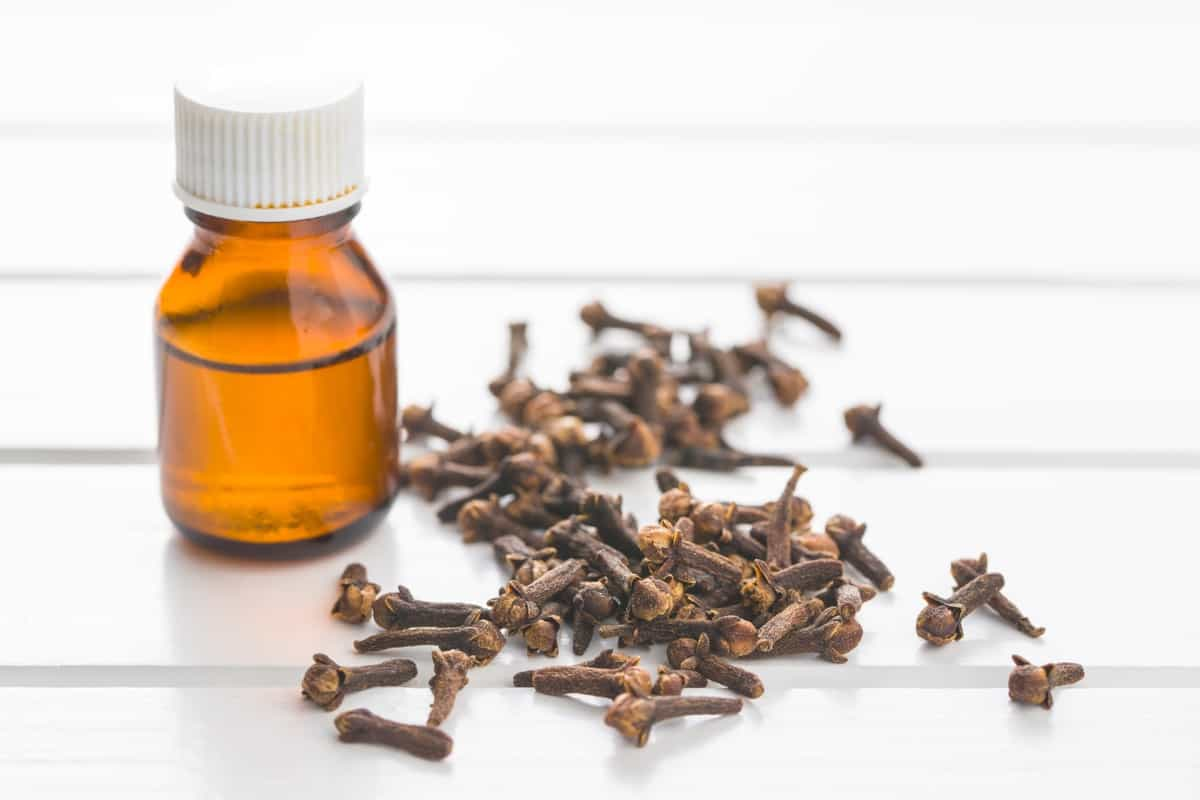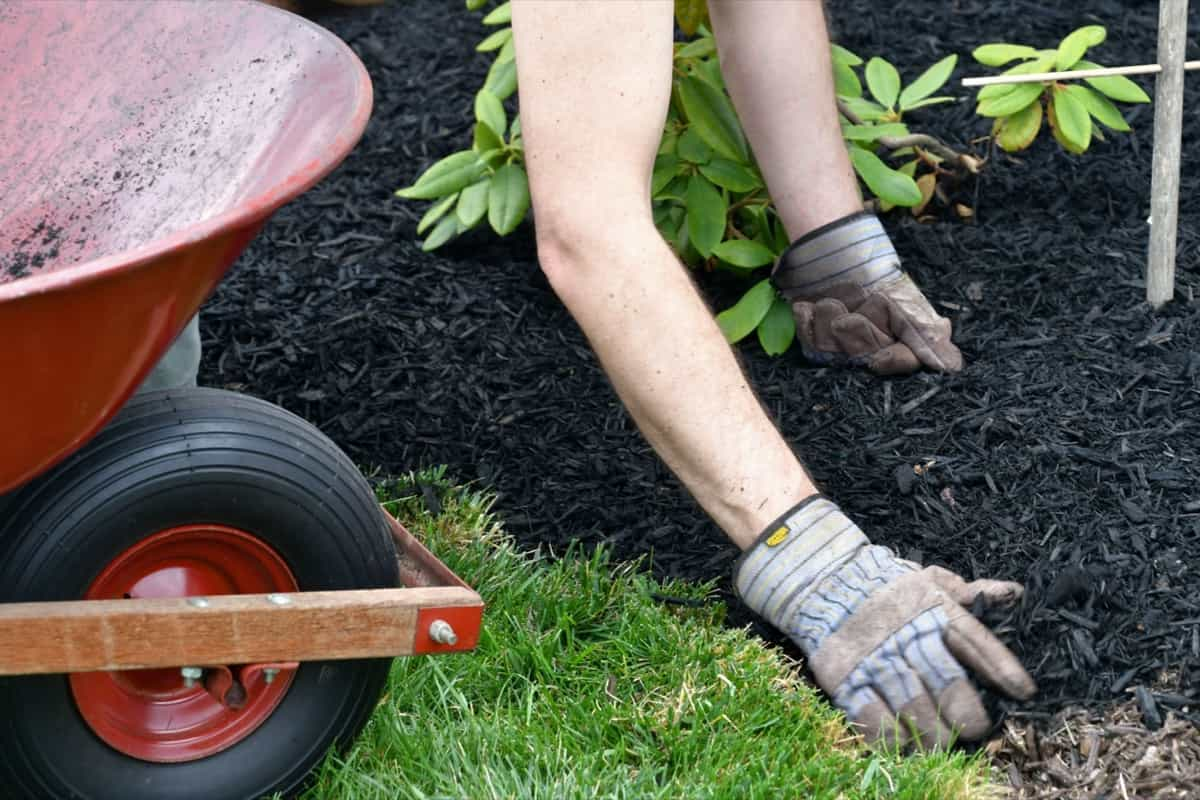Weeds can be a persistent and frustrating problem for gardeners. While commercial weed killers are available, some may prefer a more natural approach. Homemade weed killers can be effective and eco-friendly alternatives. In this article, we will explore a few homemade weed-killer recipes that you can easily make at home.
Homemade Weed Killers for Gardens
Clove Oil
It is extracted from the clove plant flower buds, scientifically known as Syzygium aromaticum. It is widely used in various industries, such as medicine, fragrances, and even cooking. Natural weed killers have been proven effective with clove oil because of their strong aroma and potent properties.
In case you missed it: 9 Causes of Dying Cloves Trees and How to Fix Them?

Its weed-killing properties are attributed to the active ingredient in clove oil, eugenol. By disrupting the cellular membranes of plants, eugenol acts as a natural herbicide. Clove oil penetrates their leaves and stems when applied to weeds, leading them to dehydrate and ultimately die. After mixing water and clove oil in a spray bottle, spray clove oil directly on unwanted plants. This method requires spraying the seedlings before they become big weeds to kill them.
Salt
In addition to being affordable, salt is a practical weed prevention method that requires little effort. Salt directly applied to weeds will suffocate and kill these unwanted growths in your garden. Remember that salt can kill all plants, so only use it on weeds. Ensure you do not accidentally harm other plants around the weed by mixing water and salt and spraying directly on it.
Rubbing Alcohol
Rubbing alcohol, also called isopropyl alcohol, is an antiseptic commonly found in the home. Bacteria and viruses are effectively killed by it, which makes it an ideal ingredient for homemade weed killers. It is possible to kill unwanted weeds with rubbing alcohol by making a homemade weed killer. This method is effective and eco-friendly.
Dilute two tablespoons of rubbing alcohol with one quart of water. The solution should be mixed in a spray bottle for ease of use. As with vinegar, spray directly onto the weeds on a sunny day and keep it away from other plants. As a desiccant, rubbing alcohol causes weeds to wither and die when applied to their cells.
Baking Soda
Baking soda is a white crystalline powder used for various household purposes. Baking soda controls weeds by altering soil pH balance, making it less favorable to weed growth. Its alkaline properties prevent weeds from absorbing water and essential nutrients, resulting in death.
In case you missed it: Homemade DIY Baking Soda Solution for Pests and Disease Control: Recipe for Natural and Organic Benefits of Plants

Put two tablespoons of distilled white vinegar, one tablespoon baking soda, and one tablespoon of liquid dish soap in a spray bottle. Shake the spray bottle gently to ensure the ingredients are thoroughly mixed. Use the rest of the spray bottle to fill with water, and spray the homemade solution directly onto the weeds’ leaves and stems.
Cornmeal
Cornmeal is a pre-emergent herbicide that prevents weed seeds from germinating. It contains a natural compound that inhibits the growth of weeds without harming other plants. This makes cornmeal a safe and organic option for weed control. The top dressing method is most effective for weed control in flower beds or vegetable gardens. Sprinkle a thin layer of cornmeal around the plants’ base, ensuring not to bury the stems. This will create a gluten barrier, inhibiting the germination of weed seeds. Reapply the cornmeal as needed, especially after heavy rainfall or watering.
You can make cornmeal tea if you want to target weeds in large areas, such as lawns or pathways. Adding one cup of cornmeal to four cups of water will yield four cups of boiled water. Approximately 30 minutes after mixing, let the mixture steep. In a spray bottle, transfer the liquid after it has been strained. Apply cornmeal tea directly to the weeds, ensuring thorough coverage. The process should be repeated every few weeks until the weeds are eradicated.
Vinegar
Vinegar, specifically white vinegar with an acetic acid concentration of 5% or higher, is a potent weed killer due to its acidic properties. When applied to unwanted vegetation, vinegar works by breaking down the plant’s cell membranes, leading to dehydration and eventual death. While vinegar is a non-selective herbicide, meaning it can harm any plant it comes into contact with, it is particularly effective against broadleaf weeds, such as dandelions, thistles, and other weeds.
In case you missed it: Homemade DIY Vinegar Spray for Pest and Disease Control: Recipe for Natural and Organic Benefits of Plants

Firstly, ensure you use vinegar with an acetic acid concentration of 5% or higher for maximum effectiveness. Apply the vinegar directly to the leaves and stems of the weeds on a sunny day when rain is not expected, as the sunlight aids in the breakdown process.
Boiling Water
Boiling water works as a weed killer by causing thermal shock to the plant cells. When hot water is poured over the weeds, it rapidly increases the temperature of the plant tissues, leading to the destruction of cells and ultimately killing the plants. Slowly and carefully pour the boiling water directly onto the base of the weeds, ensuring that the entire plant is thoroughly soaked. For larger areas or persistent weeds, you may need to repeat this process multiple times.
Mulching
Organic mulching involves applying a layer of organic materials, such as straw, leaves, wood chips, or grass clippings, to the soil surface around plants. Apart from improving soil health and conserving moisture, organic mulch acts as a physical barrier that suppresses weed growth by blocking sunlight and preventing weed seeds from germinating. Before applying mulch, remove any existing weeds from the area.
In case you missed it: Homemade DIY Pine Needle Mulch Soil Fertilizer: Recipe for Natural and Organic Benefits of Plants

This step ensures that the weeds do not grow through the mulch layer and continue to compete with your plants. Apply an organic mulch layer around your plants, ensuring a 2-4 inches thickness. Be careful not to pile mulch against the plant stems, which can lead to rot or pest problems. Regularly check the mulch layer for thinning or bare spots, and replenish as needed. This will ensure efficient weed suppression and provide continuous benefits to your plants.
Conclusion
By utilizing these homemade weed-killer recipes, you can effectively control weeds in your garden without relying on commercial products. Experiment with these methods to find the one that works best for you and helps keep your garden weed-free.
- Feed Your Flock for Less: Top 10 Tips to Save on Chicken Feed
- Ultimate Guide to Ossabaw Island Hog: Breeding, Raising, Diet, and Care
- Hatching Answers: The Top 10 Reasons Your Chickens Aren’t Laying Eggs
- Eggs and Economics: Breaking Down the Cost of Raising Backyard Chickens
- Defend Your Greens: Proven Methods to Keep Iguanas Out of Your Garden
- Ultimate Guide to Cinnamon Queen Chicken: A Comprehensive Guide for Beginners
- Ultimate Guide to California Tan Chicken: Breeding, Raising, Diet, Egg-Production and Care
- Ultimate Guide to Marsh Daisy Chicken: Breeding, Raising, Diet, and Care
- 10 Types of Chicken Farming Businesses You Can Start for Profits